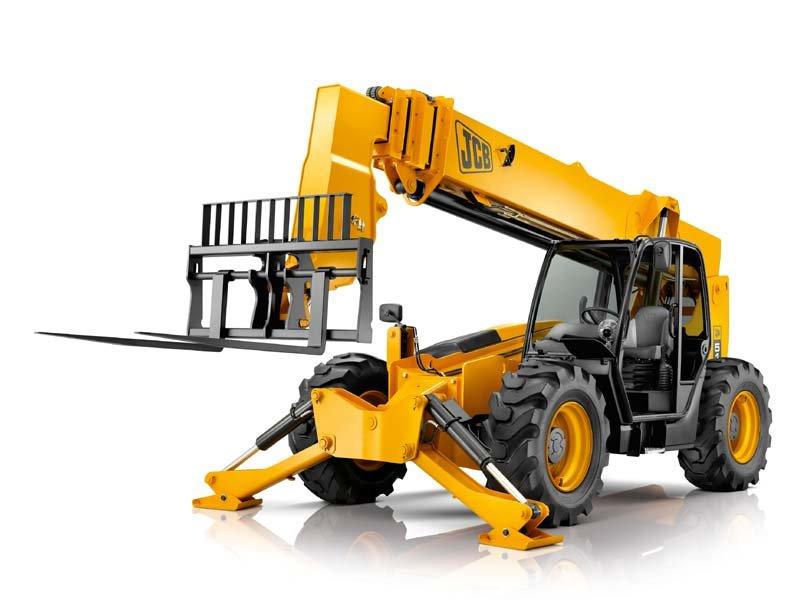Aerial Lift Rental: Versatile Training Solutions for High-Access Jobs
Aerial Lift Rental: Versatile Training Solutions for High-Access Jobs
Blog Article
Optimize Your Budget Plan by Comprehending the Costs Related To Building Equipment Services
Comprehending the full range of prices linked with building equipment services is important for maximizing your spending plan. While the initial rental cost may appear simple, numerous extra expenses-- such as transport, fuel additional charges, and upkeep-- can quickly build up, influencing your economic planning. In addition, understanding numerous charges and the details of rental agreements can help stay clear of unexpected economic burdens. What methods can be used to efficiently take care of these costs and make sure an extra efficient rental experience?
Review of Rental Expenses
When considering building and construction devices rentals, understanding the linked costs is extremely important for efficient budgeting and project planning. Rental prices can vary significantly based upon several aspects, including tools type, duration of service, and place. The first rental cost commonly reflects the devices's market need and its associated operational capacities, influencing the general expenditure.
Along with the base rental rate, supplementary prices may occur, such as transport costs, fuel surcharges, and upkeep costs. It is important to make up these additional expenditures to properly analyze the total price of leasing equipment. The rental period can affect prices; longer services might certify for affordable prices, while short-term leasings might incur higher daily charges.

Breakdown of Rental Prices
A comprehensive understanding of rental rates is important for professionals and project managers intending to optimize their budgets. Rental prices for construction equipment usually consist of a number of elements, consisting of base rates, time-based charges, and use charges.
Base rates are the core charges connected with the leasing of the equipment, frequently identified by the kind and dimension of the machinery. These prices can differ dramatically, influenced by aspects such as tools demand, availability, and regional market trends. Time-based fees, which might be daily, weekly, or monthly, offer to suit different job timelines and rental periods.
Additionally, rental rates might include use charges, which are applicable when tools is used past a specified threshold, making sure that the rental company can make up wear and tear. Seasonal need changes can additionally impact rental prices, with peak building periods commonly commanding greater prices.
Additionally, understanding the rental business's policies relating to upkeep and insurance coverage can give further understanding into the general price structure. By assessing these components, service providers can make educated choices, ensuring the choice of rental tools aligns with both job needs and budget restrictions.
Added Fees to Think About
Comprehending the ins and outs of added costs is crucial for contractors to manage their overall rental expenses efficiently. Beyond the basic rental rates, different extra costs can dramatically influence the complete expense of devices service. These charges commonly consist of shipment and pickup charges, which can vary based upon range and logistics associated with delivering the devices to and from the task site.
In addition, some rental companies might enforce fuel additional charges if the equipment is returned with less gas than when rented. It is also vital to understand possible cleansing fees, particularly for customized devices that needs comprehensive maintenance after usage.

Extensively evaluating the rental arrangement and clearing up these additional charges upfront can aid specialists guarantee and stay clear of unforeseen prices that budget plans continue to be intact throughout the task lifecycle.
Maintenance and Fixing Expenses
Routine repair and maintenance expenditures are typically overlooked aspects that can significantly influence the total cost of building tools leasings. When renting out equipment, it is important to take into consideration not only the rental charges yet also the prospective prices connected with keeping the equipment in optimum operating condition.
Numerous rental firms consist of basic maintenance as component of the rental contract; nonetheless, more unforeseen failures or extensive repair services can cause additional costs. It's essential to evaluate the rental contract very carefully to recognize what upkeep solutions are covered and what duties drop on the occupant.
Furthermore, equipment that is not well-maintained can lead to ineffectiveness at work site, potentially triggering delays and enhancing project costs. To reduce these dangers, it is advisable to conduct routine assessments and preserve open communication with the rental company concerning any issues that arise throughout usage.
Insurance Coverage and Obligation Costs
Insurance and responsibility prices are important elements that can considerably impact the overall expenditure of building and construction devices rentals (scissor lift rental). These costs ensure that both the rental firm and the client are protected from prospective financial losses arising from mishaps, damages, or theft throughout the rental period

In addition, clients must be mindful of any deductibles or exclusions in the insurance coverage, as these can impact prospective out-of-pocket costs. Comprehending the conditions of any kind of insurance coverage is essential to avoid unforeseen prices. Ultimately, budgeting for insurance coverage and responsibility expenses can help make sure a smoother rental experience and protect versus economic risks connected with building and construction projects.
Conclusion
In conclusion, a comprehensive understanding of the prices linked with building equipment rentals is crucial for reliable budget plan management. Ultimately, educated decision-making pertaining to tools services adds to the general success of construction undertakings.
Rental prices can vary considerably based on several variables, including tools kind, duration of service, and place (construction equipment rentals). The rental duration can affect rates; longer leasings might qualify for discounted rates, while short-term rentals might sustain greater day-to-day charges
By conducting extensive research and engaging with trusted rental business, specialists can effectively browse the intricacies of rental pricing, inevitably maximizing their monetary sources.
Beyond the typical rental rates, numerous additional fees can significantly affect the complete cost of devices leasing. Rental business often give my blog responsibility insurance that covers injuries to 3rd events or damage to building, while equipment damage insurance coverage can cover the price of repairs or substitute if the rented devices is damaged.
Report this page